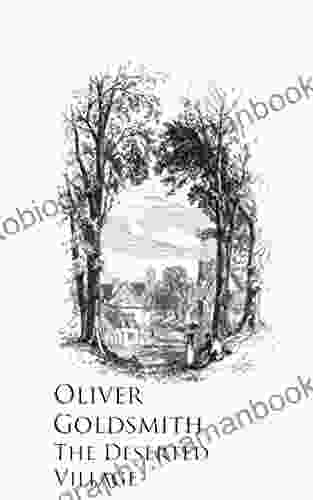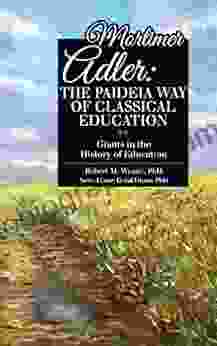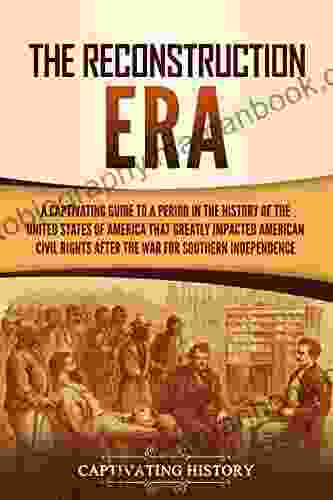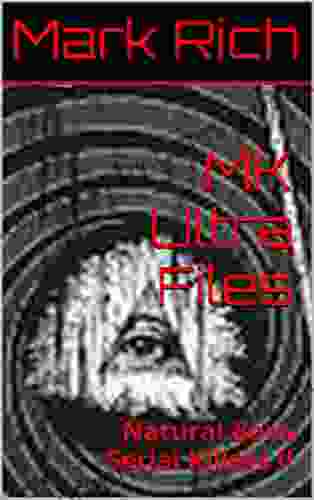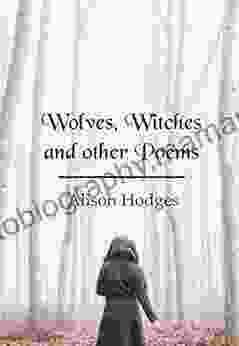The Deserted Village by Oliver Goldsmith: A Poetic Masterpiece on the Devastating Effects of Industrialization

In the annals of English literature, Oliver Goldsmith's "The Deserted Village" stands as a poignant and timeless masterpiece. Published in 1770, this evocative poem laments the devastating effects of industrialization on rural communities and celebrates the enduring beauty of nature. With its vivid imagery, evocative language, and profound insights, "The Deserted Village" continues to resonate with readers centuries after its creation.
4.4 out of 5
| Language | : | English |
| File size | : | 3199 KB |
| Text-to-Speech | : | Enabled |
| Enhanced typesetting | : | Enabled |
| Print length | : | 62 pages |
| Screen Reader | : | Supported |
Themes
At its core, "The Deserted Village" explores the profound impact of industrialization on rural life. Goldsmith witnessed firsthand the rapid transformation of England during the 18th century, as urbanization and industrialization encroached upon traditional agricultural communities. This transition brought about both progress and upheaval, and Goldsmith's poem captures the complexities of this era.
The poem's central theme is the decline of rural society. Goldsmith portrays a once-thriving village now abandoned and desolate. The once-prosperous inhabitants have been forced to flee their homes, leaving behind empty houses and crumbling ruins. The poet mourns the loss of this vibrant community and the traditional values it embodied.
Another prominent theme in "The Deserted Village" is the contrast between the artificiality of city life and the natural beauty of the countryside. Goldsmith juxtaposes the hustle and bustle of urban centers with the tranquility and peace of the rural landscape. He argues that true happiness and fulfillment can only be found in harmony with nature.
Characters
Although "The Deserted Village" is primarily a descriptive and reflective poem, it also features a cast of memorable characters who represent the different aspects of rural life. The most prominent character is the poet himself, who acts as a narrator and observer. Through his eyes, we witness the transformation of the village and the struggles of its inhabitants.
Other characters in the poem include the village preacher, the schoolmaster, and the innkeeper. These individuals represent the pillars of the community, but they are all affected by the decline of the village. The preacher becomes dispirited, the schoolmaster is forced to close his school, and the innkeeper's business dwindles.
The villagers themselves are depicted as simple and hardworking people. They are deeply attached to their homes and traditions, but they are powerless to stop the forces that are destroying their way of life. Goldsmith portrays them with great empathy and compassion, highlighting the human cost of industrialization.
Literary Devices
Goldsmith's use of literary devices in "The Deserted Village" is masterful. The poem's language is rich and evocative, with vivid imagery that appeals to the reader's senses. Goldsmith employs a variety of poetic techniques, including metaphors, similes, and personification, to create a vivid and memorable picture of the deserted village.
The poem's structure is also significant. It is written in heroic couplets, which consist of two lines of iambic pentameter rhyming together. This formal structure gives the poem a sense of balance and elegance, but it also allows Goldsmith to express complex ideas in a clear and concise manner.
Goldsmith also uses irony and satire to convey his message. He contrasts the idyllic beauty of the village's past with the harsh realities of its present, highlighting the folly of human ambition and the fragility of rural life.
Legacy
"The Deserted Village" has had a profound impact on English literature and culture. It is widely considered one of Goldsmith's greatest works and is frequently anthologized and studied in schools. The poem's themes and insights continue to resonate with readers today, offering a timeless meditation on the relationship between humanity and nature.
Beyond its literary merits, "The Deserted Village" has also been influential in shaping public policy. Goldsmith's depiction of the devastating effects of industrialization helped to raise awareness of the social and economic issues facing rural communities. The poem is credited with inspiring reforms and policies aimed at protecting and preserving rural life.
Oliver Goldsmith's "The Deserted Village" is a masterpiece of English literature that explores the profound impact of industrialization on rural communities and the enduring beauty of nature. Through its vivid imagery, evocative language, and insightful themes, the poem captures the complexities of a changing era and offers a timeless meditation on human values and the fragility of life.
Whether read for its aesthetic pleasure, historical significance, or philosophical insights, "The Deserted Village" remains a powerful and moving work that continues to captivate and inspire readers centuries after its creation.
4.4 out of 5
| Language | : | English |
| File size | : | 3199 KB |
| Text-to-Speech | : | Enabled |
| Enhanced typesetting | : | Enabled |
| Print length | : | 62 pages |
| Screen Reader | : | Supported |
Do you want to contribute by writing guest posts on this blog?
Please contact us and send us a resume of previous articles that you have written.
 Top Book
Top Book Novel
Novel Fiction
Fiction Nonfiction
Nonfiction Literature
Literature Paperback
Paperback Hardcover
Hardcover E-book
E-book Audiobook
Audiobook Bestseller
Bestseller Classic
Classic Mystery
Mystery Thriller
Thriller Romance
Romance Fantasy
Fantasy Science Fiction
Science Fiction Biography
Biography Memoir
Memoir Autobiography
Autobiography Poetry
Poetry Drama
Drama Historical Fiction
Historical Fiction Self-help
Self-help Young Adult
Young Adult Childrens Books
Childrens Books Graphic Novel
Graphic Novel Anthology
Anthology Series
Series Encyclopedia
Encyclopedia Reference
Reference Guidebook
Guidebook Textbook
Textbook Workbook
Workbook Journal
Journal Diary
Diary Manuscript
Manuscript Folio
Folio Pulp Fiction
Pulp Fiction Short Stories
Short Stories Fairy Tales
Fairy Tales Fables
Fables Mythology
Mythology Philosophy
Philosophy Religion
Religion Spirituality
Spirituality Essays
Essays Critique
Critique Commentary
Commentary Glossary
Glossary Bibliography
Bibliography Index
Index Table of Contents
Table of Contents Preface
Preface Introduction
Introduction Foreword
Foreword Afterword
Afterword Appendices
Appendices Annotations
Annotations Footnotes
Footnotes Epilogue
Epilogue Prologue
Prologue John R Monteith
John R Monteith Gabriella Alziari
Gabriella Alziari Glyn Iliffe
Glyn Iliffe Anne Baker
Anne Baker Christopher Sheriff
Christopher Sheriff Myra Oliver
Myra Oliver Jane Lyttleton
Jane Lyttleton Deborah D Stewart
Deborah D Stewart Jenny Lewis
Jenny Lewis Neil Shubin
Neil Shubin Ronald H Heck
Ronald H Heck Rollo Tomassi
Rollo Tomassi Emily A Benson
Emily A Benson Mary Nhin
Mary Nhin Pamela Brookes
Pamela Brookes William Gaddis
William Gaddis Caroline Dunford
Caroline Dunford Marieke Nijkamp
Marieke Nijkamp John Stack
John Stack D G Redd
D G Redd
Light bulbAdvertise smarter! Our strategic ad space ensures maximum exposure. Reserve your spot today!
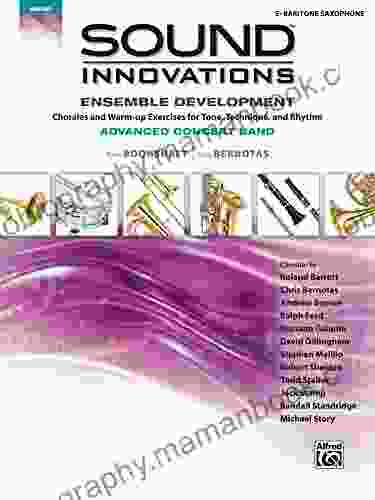
 Jay SimmonsEnsemble Development for Advanced Concert Band: Mastering the Flat Baritone...
Jay SimmonsEnsemble Development for Advanced Concert Band: Mastering the Flat Baritone... Jarrett BlairFollow ·13k
Jarrett BlairFollow ·13k Mikhail BulgakovFollow ·16.8k
Mikhail BulgakovFollow ·16.8k Robin PowellFollow ·10.3k
Robin PowellFollow ·10.3k Colby CoxFollow ·9.1k
Colby CoxFollow ·9.1k Jaden CoxFollow ·16.5k
Jaden CoxFollow ·16.5k Alvin BellFollow ·5.1k
Alvin BellFollow ·5.1k Darnell MitchellFollow ·13.6k
Darnell MitchellFollow ·13.6k T.S. EliotFollow ·17.3k
T.S. EliotFollow ·17.3k

 Oscar Bell
Oscar BellDream Keeper II by Parris Afton Bonds: An Exploration of...
Dream Keeper II by Parris...
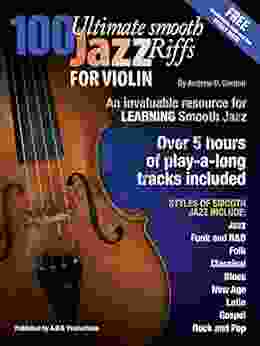
 Eric Hayes
Eric Hayes100 Ultimate Smooth Jazz Riffs For Violin: Elevate Your...
Welcome to the ultimate...

 Vernon Blair
Vernon BlairAll You Need to Know to Start Investing and Trading...
Binance is...
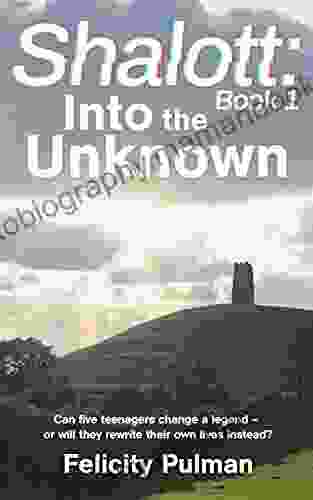
 Greg Foster
Greg FosterShalott: Into the Unknown
In the heart of medieval...

 Will Ward
Will WardMoney Making Money Instead of You Working: Unleashing the...
In a world where...
4.4 out of 5
| Language | : | English |
| File size | : | 3199 KB |
| Text-to-Speech | : | Enabled |
| Enhanced typesetting | : | Enabled |
| Print length | : | 62 pages |
| Screen Reader | : | Supported |


